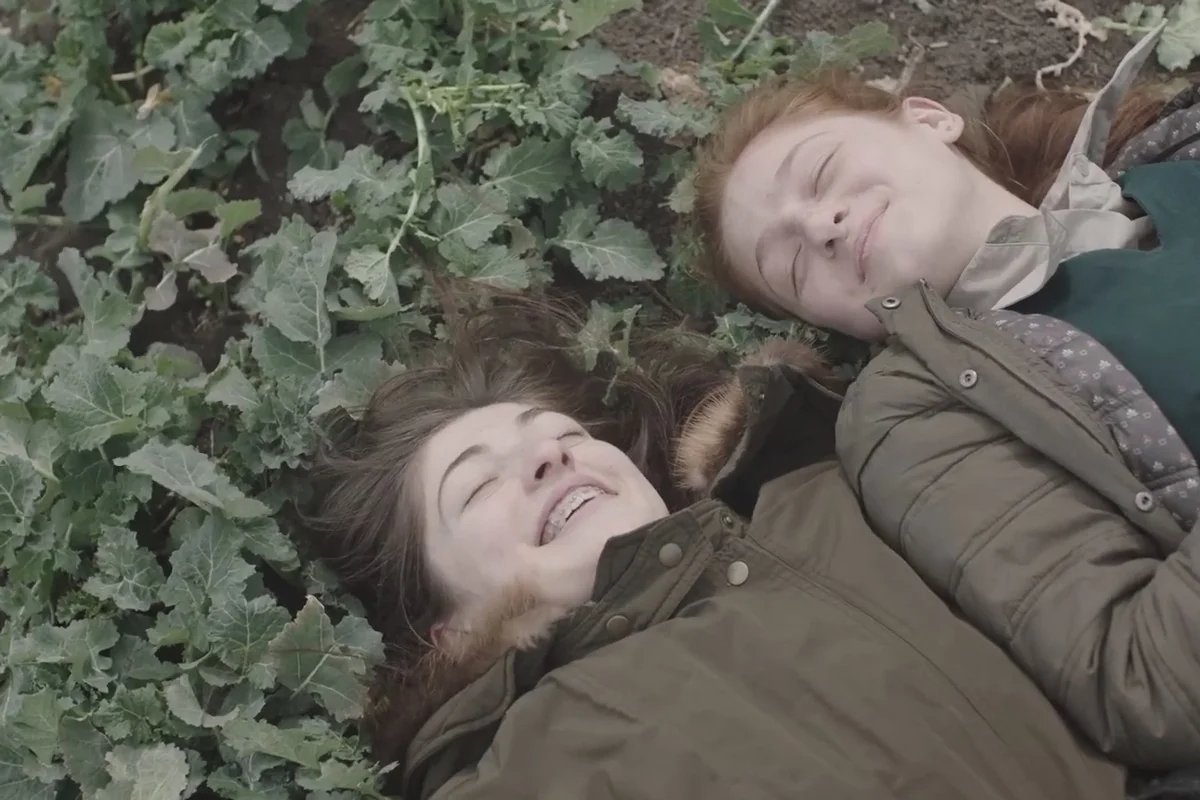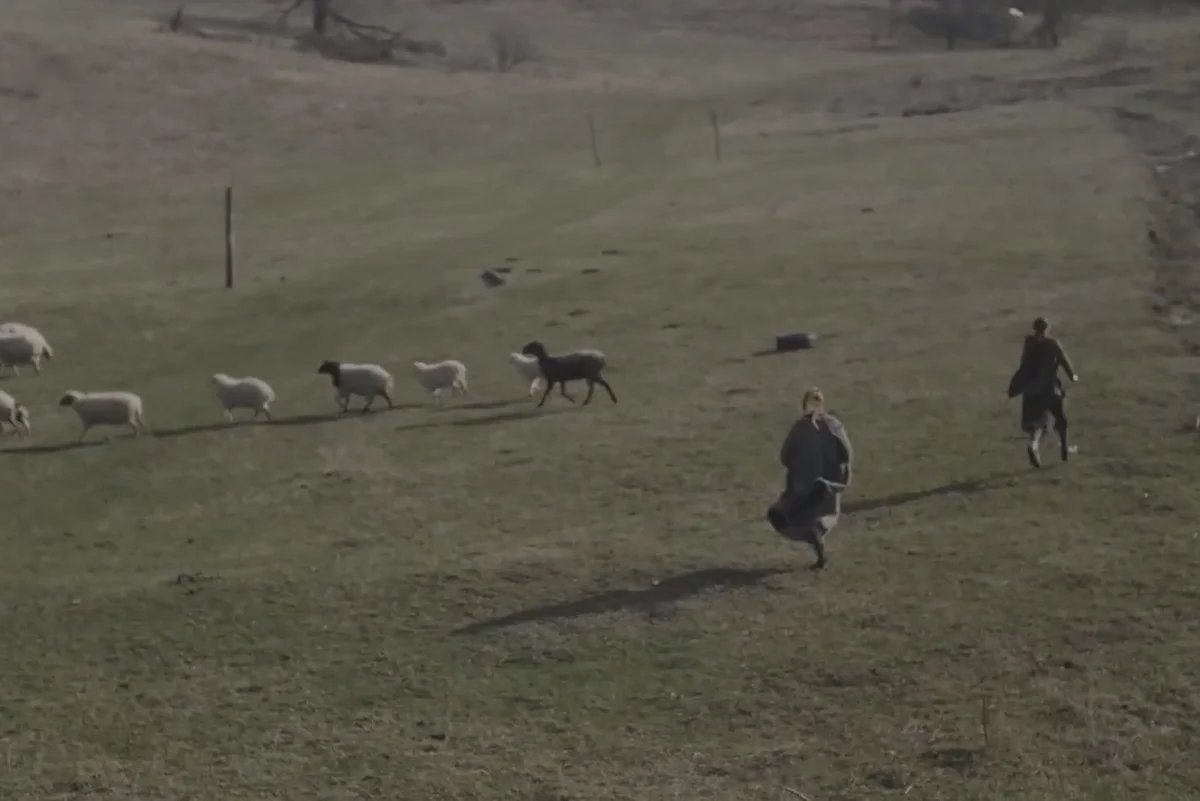Red-haired, freckled Yakha and her friend brown-eyed Madina are in their final year at a rural high school in Chechnya. Local norms dictate that girls enter into arranged marriages at a young age, but Yakha is still uncertain about her future. For now, her days are spent talking with her best friend during long walks and childishly rolling down hills.
Meanwhile, her older sister wants to leave her husband, but is conflicted as it would also mean leaving her beloved son with him. Yakha’s aunt has picked a wealthy suitor to secure a better future for her niece and preparations are beginning to marry her off in the summer.
The narrative in this pared back feature, which was the only Russian film shown at this year’s Berlin Film Festival, places more emphasis on aspects of female tactility and non-verbal interaction, alongside a focus on the expansive Caucasian landscape, its peaceful sounds and intimate close-ups of its people.
“The Cage is Looking for a Bird” is a portrait of an entire region: a sedate look at people who have never before had a place on the big screen.
As the first feature length film made in Chechen, about Chechens and shot in the Caucasus, its existence alone is an achievement, and Musaeva has described feeling like the spokesperson for a whole nation. In a world where Chechnya is perceived by many only in the context of separatism, terrorism and war, “The Cage is Looking for a Bird” is a lone but very welcome challenge to such dehumanising perceptions.

“The Cage is Looking for a Bird”. Photo: screenshot from the film
Sokurov’s legacy
Malika Musaeva was born in 1992 and lived through both Chechen wars. Two days after she and her family fled to Ingushetia, Russian militia units swept through her village and killed all its inhabitants. Her family went into hiding, first in the neighbouring region of Ingushetia, then in the city of Ivano-Frankivsk in western Ukraine. Musaeva spent her youth in the city of Nalchik in the North Caucasus, and then Germany. However, she decided to return to Russia when “Russian Ark” director Alexander Sokurov began running a filmmaking workshop at the Kabardino-Balkarian State University in Nalchik.
Sokurov’s course trained fledgling directors from the region and required them to make films about the Caucasus in its local languages.
The Sokurovian approach can clearly be seen in Musaeva’s reverence for language, her preference for outdoor scenes, and her casting of unknown or untrained actors, as well as the political message made accessible through the director’s masterful grasp of the setting.
The conflict of the everyday and the aspirational in Musaeva’s film is indicative of a fuller life somewhere else, and like fellow Sokurov alum Kantemir Balagov’s “Closeness” and Kira Kovalenko’s “Unclenching the Fists”, the recurring theme of “The Cage is Looking for a Bird” is the beautiful faraway — an unknown world of freedom that is coveted by teenagers as much as it is feared by their parents. “Take me away from here” is the resounding refrain delivered by the heroines of these films.
The other Chechnya
Considering the real-life circumstances of the director and her actors, “The Cage is Looking for a Bird” is a dazzling display of emotional authenticity. After the film wrapped, both leads got married and took the hijab. Under pressure from their families and their community, both of which were unhappy about their participation in the film, neither plans to act again. Concerned for its potential to adversely affect them both, even Musaeva says she hopes the film passes largely unnoticed in Chechnya.
Musaeva, who now lives in Germany, says she can’t now imagine returning to film in the North Caucasus. The war with Ukraine has made the already reserved residents of the region even more uneasy and suspicious of outsiders.

“The Cage is Looking for a Bird”. Photo: screenshot from the film
Like the director herself, who as a young girl was uprooted by war and found herself living in alien lands, there is a unique courage embedded in this work. Almost absent of men, the film presents an image of Chechnya that’s in stark contrast to that forged by Russian propaganda and the brutal regime of Chechen head Ramzan Kadyrov, whose most recent contribution to the visual arts was releasing a video of his 15-year-old son beating up a defenceless prisoner.
That this narrative reframing was the work of a Chechen woman who left Chechnya and went on to find her voice in the outside world makes this all the more significant. The cage didn’t capture this bird.
Join us in rebuilding Novaya Gazeta Europe
The Russian government has banned independent media. We were forced to leave our country in order to keep doing our job, telling our readers about what is going on Russia, Ukraine and Europe.
We will continue fighting against warfare and dictatorship. We believe that freedom of speech is the most efficient antidote against tyranny. Support us financially to help us fight for peace and freedom.
By clicking the Support button, you agree to the processing of your personal data.
To cancel a regular donation, please write to [email protected]

